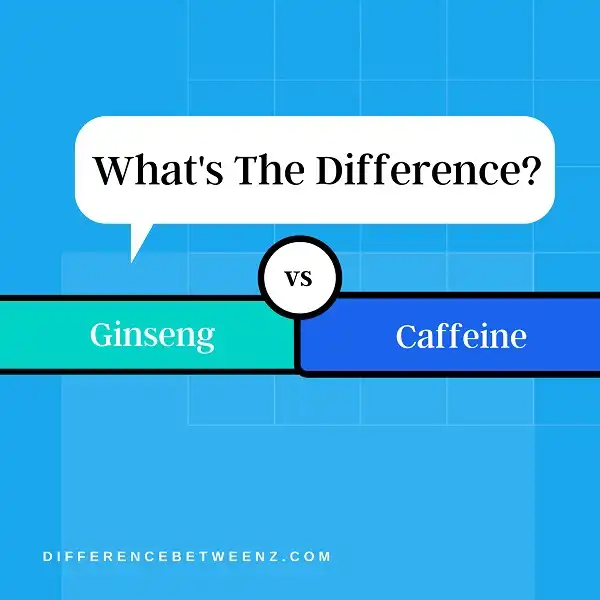Are you wondering if you should be drinking coffee or tea to get an energy boost? What about using ginseng supplements? This article will compare the benefits of caffeine and ginseng. You’ll learn about the types of results you can expect from each, as well as some tips for using them safely.
What is Ginseng?
Ginseng is a plant that is native to North America and Asia. It has been used for centuries in Traditional Chinese Medicine, and it is thought to have a range of health benefits. Ginseng is typically consumed as tea, and it is said to help improve energy levels, promote relaxation, and boost immunity. Ginseng is also sometimes used as a natural remedy for anxiety and stress. While more research is needed to confirm the purported benefits of ginseng, it is generally considered to be safe for most people when consumed in moderation.
What is Caffeine?
Caffeine is a bitter, white crystalline alkaloid that acts as a stimulant in humans and other animals. It is found naturally in coffee, tea, chocolate, and cola nuts. Caffeine was first isolated in 1819 by Swedish chemist Karl Friedlieb Ferdinand Runge. In humans, caffeine acts as a central nervous system stimulant, temporarily warding off drowsiness and restoring alertness. Caffeine is the world’s most widely consumed psychoactive drug and it is legal and unregulated in nearly all jurisdictions. Beverages containing caffeine are extremely popular; coffee is consumed by over half of the world’s population, while tea is the second-most-consumed beverage after water. Caffeine is sometimes added to pharmaceutical drugs, as it serves to increase the efficacy of some over-the-counter medications including analgesics, antihistamines, and diuretics. Caffeine can have both positive and negative health effects. Its consumption has been linked to benefits such as improved cognitive function, weight loss, and decreased risks of certain diseases; however, it can also lead to adverse effects such as anxiety, restlessness, sleeplessness, and addiction.
Difference between Ginseng and Caffeine
- Ginseng and caffeine are both ingredients that can be found in energy drinks. Ginseng is a herb that has been used in traditional Chinese medicine for centuries. It is thought to improve energy levels, concentration, and stamina. Caffeine, on the other hand, is a stimulant that speeds up the nervous system and gives you an instant ‘boost’ of energy. However, it can also cause side effects such as anxiety, restlessness, and insomnia.
- Ginseng is generally considered to be more effective than caffeine in terms of improving energy levels and concentration. Ginseng works by stimulating the central nervous system, while caffeine blocks adenosine receptors which makes you feel more alert. Ginseng also has anti-inflammatory properties, while caffeine can actually increase inflammation. However, ginseng is more expensive than caffeine and can take longer to work (up to two hours). Caffeine also has the advantage of being widely available and relatively cheap. So, it really depends on your needs and preferences as to which one you choose.
Conclusion
While caffeine is a stimulant that can help you feel more alert, ginseng has different effects. Ginseng is an adaptogen, which means it helps your body deal with stress. It also contains antioxidants and has been shown to improve cognitive function. If you’re looking for an energy boost that will last throughout the day, ginseng may be a better choice than caffeine.


